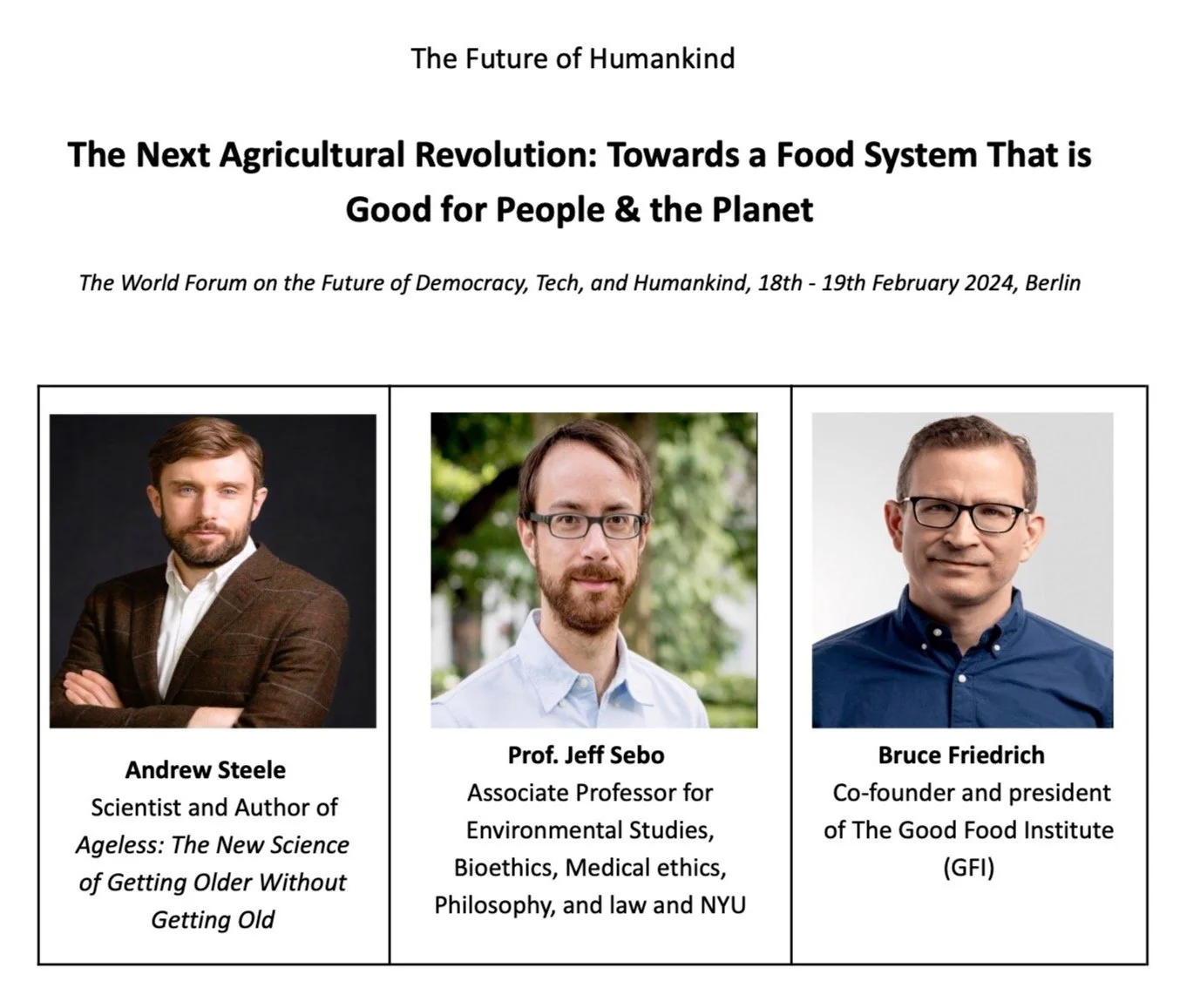Calls for Action
The UN Food and Agriculture Organization (FAO) should convene with stakeholders to discuss a holistic framework for alternative food system analysis that addresses climate, health, ethics in policy making.
See Appendix I. Can cutting meat consumption alone address environmental and ethical issues, or are alternative protein sources necessary?
The FAO has previously collaborated with the World Health Organization (WHO) to address topics on the Codex Alimentarius Commission which sets international food standards. These meetings have successfully brought together diverse stakeholders to develop guidelines that influence global food policy.
FAO and WHO co-lead the UN Decade of Action on Nutrition (2016-2025), a commitment by UN Member States to implement policies, programs, and investments over 10 years to eliminate malnutrition globally, ensuring no one is left behind.
Research institutes and universities should collaborate with startups through pilot projects to test innovative sustainable food solutions & efficiency gains strategies tailored for developing regions.
See Appendix III. Strategies For Sustainability And Food Security: Efficiency Gains
Ex. Indian Institute of Technology (IIT) partners with GoodDot (a plant-based meat startup to developing plant-based meat products using locally sourced ingredients to cater to regional tastes and dietary preferences. The project led to the successful introduction of plant-based meat in local markets, providing a sustainable and affordable protein source.
National/State Governments should incentivize transition away from intensive animal agriculture and mitigate associated public health and environmental risks.
Ex. Singapore became the first country to approve the sale of cultured meat, establishing a regulatory framework to ensure safety and quality. This regulatory support has positioned Singapore as a leader in alternative protein innovation.
International Climate Organizations should partner with animal advocacy orgs to raise joint awareness of diet/food system linkages among activists and further mainstream animal welfare in climate conversations.
Humane Society International (HSI) has worked to bring animal welfare into the Intergovernmental Panel on Climate Change (IPCC)'s climate discussions, emphasizing the role of animal agriculture in climate change and advocating for plant-based diets as a mitigation strategy.
Government funding agencies such as the USDA should increase funding for research on alternative proteins and farming approaches from both animal welfare and sustainability perspectives.
India’s National Mission for Sustainable Agriculture (NMSA) promotes sustainable agricultural practices, including organic farming, soil health management, and integrated farming systems. The mission provides financial and technical support to farmers transitioning away from intensive animal agriculture, thereby enhancing food security and environmental sustainability.
See Appendices for More Information: Appendix I, Appendix II & Appendix III
Main Outcomes:
Increased research and development of alternative proteins and farming approaches, providing more sustainable and humane options.
Shifting of agricultural policies and subsidies at scale to incentivize transition away from industrial animal agriculture toward plant-based and cell-based meat production.
Development of a coordinated, holistic framework for analyzing and reforming food systems to maximize benefits across climate change, public health, animal welfare and other issues.
Successful piloting of innovative food projects in developing regions through partnerships between nonprofits, startups and research institutions.
Stronger regulatory protections that help phase out the most intensive and inhumane animal agriculture practices due to associated risks.
Enhanced public awareness and discourse around diet and food policy linkages to climate change through coordinated advocacy efforts.
Accelerated progress toward environmentally sustainable, compassionate and secure food systems globally through concerted action across multiple stakeholders and avenues of reform.
Panel Discussion Summary
The panel addressed the urgent need to reform the global food system in order to mitigate the environmental and public health impacts of industrial animal agriculture. Rising meat consumption is projected to significantly increase greenhouse gas emissions and pandemic risk by 2050 if left unaddressed.
Bruce Friedrich, Co-founder and president of The Good Food Institute (GFI) discussed ‘Alternative proteins’ like plant-based and cultivated meat which could be seen as a promising solution that could help reduce dependence on intensive livestock farming at scale. Studies suggest these alternatives may offer large climate mitigation potential comparable to renewable energy transitions.
Prof. Jeff Sebo emphasized taking a holistic, structural approach to food system reform in order to simultaneously consider issues like climate change, antibiotic resistance, animal welfare, and global health impacts. Both policy tools and technological innovations were proposed.
A balanced, pragmatic strategy was advocated that pursues multiple complementary solutions - including individual dietary shifts, R&D funding, subsidy reforms, and regulatory policies - through engagement with different stakeholders.
Broader issues like population growth, sustainable development, and effective advocacy were also discussed in the context of envisioning long-term sustainable and humane food security.

